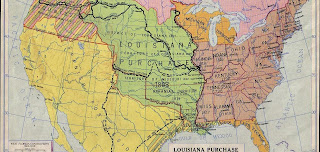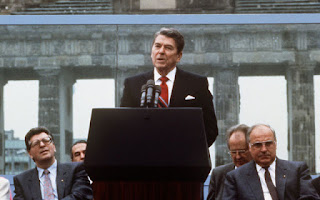PART II: The du Ponts, the Founding Fathers and the creation
of the American economy
by Gene Pisasale
When he wrote a letter to Alexander Hamilton in 1801 asking
about an investment in property along the Brandywine for the site of a mill,
E.I. du Pont was building a relationship with the man considered by many
historians as the architect of the American financial system. Hamilton had long
been a proponent of diversifying the colonial economy away from a strong
dependence on agriculture and imported goods, toward greater domestic
capabilities in manufacturing. As the nation’s first Secretary of the Treasury,
Hamilton wrote about the importance of domestically produced goods (including
gunpowder) in his “Report on the Subject of Manufactures” presented to Congress
on December 5, 1791, saying “There seems to be a moral certainty, that the
trade of a country which is both manufacturing and Agricultural will be more
lucrative and prosperous, than that of a Country which is merely Agricultural.”
Du Pont shared Hamilton’s views on manufacturing and its importance to the
economic stability of the nation. The Du Pont powder works would help the young
country through many crises- and set in motion a revolution in technology that
continues today.
Gunpowder and its many variations, including blasting powder
(mixtures of charcoal, sulfur and potassium nitrate or sodium nitrate) allowed colonists
to protect themselves against Indians and hostile elements, as well as blast
through rocks and tree stumps while clearing fields for cultivation. As the republic
expanded westward, the demand for gunpowder increased exponentially. President
Thomas Jefferson recognized the strategic importance of the du Pont powder
mills, meeting with E.I. du Pont and the Marquis de Lafayette to requisition
supplies for the U.S. government, the scene depicted in a painting by artist
Stanley Arthurs. Well-known artists captured the importance of Du Pont
products. Howard Pyle showed Du Pont powder wagons delivering gunpowder to
Commodore Perry before the critical Battle of Lake Erie during the War of 1812.
As the nation grew, so too did demand for gunpowder and
other specialized products. Du Pont management fatefully declined to sell
gunpowder to any southern states which had seceded during the Civil War,
instead providing critical supplies for the North, helping the Union to
prevail. By the dawn of the 20th century, demand for a wide array of
items for industry and consumers prompted Du Pont management to diversify into
new lines, including coatings and other chemical derivatives. Du Pont created
the Experimental Station near Wilmington, Delaware to broaden its repertoire to
meet an expanding array of needs, including the newly formed automotive
industry, as well as applications in construction, mining, manufacturing,
aerospace and consumer products. Du Pont supplied crucial materials to the United
States government throughout World War I and II, its nylon allowing the
creation of parachutes for the liberation of Europe. Consumers benefited in
many ways: women gained a new item of apparel (nylon stockings), as well as
numerous products for the home and personal use.
By the 1950s, Du Pont was at the forefront of research into
a myriad of applications derived from research in its laboratories, providing
literally hundreds of new products for business, industrial, personal and
leisure use. ‘Better living through chemistry’ became an often-quoted dogma of
the new capabilities of science which allowed people to live better lives, be
more comfortable and safer in their homes and workers throughout all industries
to function more effectively. Teflon, Rayon, Lycra, Kevlar, Corian and many
other creations improved how people lived while altering the landscape of
society. As the company celebrated its 200th anniversary in 2002,
CEO Chad Holliday’s letter to shareholders stated it well: “Our heritage of
science and discovery has delivered products and technologies that have helped
feed, clothe, shelter and heal people for generations… we set in motion the
materials revolution that has transformed the look, feel and structure of the
world we live in.”
Gene Pisasale is an
historian, author and lecturer based in Kennett Square, Pennsylvania. His nine books
focus on American history. His newest work, titled Hemingway, Cuba and the
Great Blue River explores the people, places and things the Nobel Prize winning
author loved about the island and nearby Gulf Stream. Gene can be contacted by
e-mail at Gene@GenePisasale.com.
His website is www.GenePisasale.com.
















































